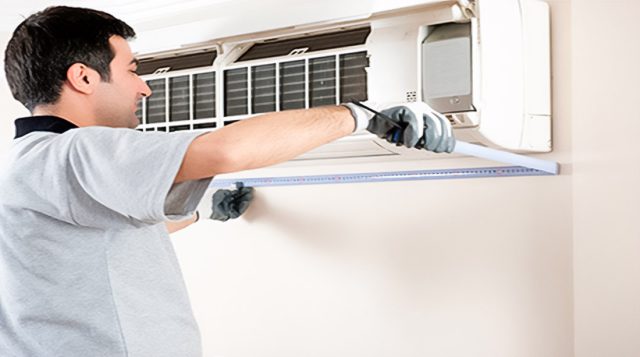Life in Dubai cannot be imagined without cooling systems. From May until late October, the air turns scorching, with temperatures regularly climbing above 45 °C and sometimes reaching 48 °C. Humidity rises beyond 50%, while sudden sand and dust storms sweep across the city without warning. Under such conditions, air conditioners run almost nonstop, making daily life inside concrete towers bearable. Yet few people realize that it is not only heat and constant load that weaken the equipment, but also the silent influence of salt, moisture, and dust.
The Adverse Effects of Sand and Dust
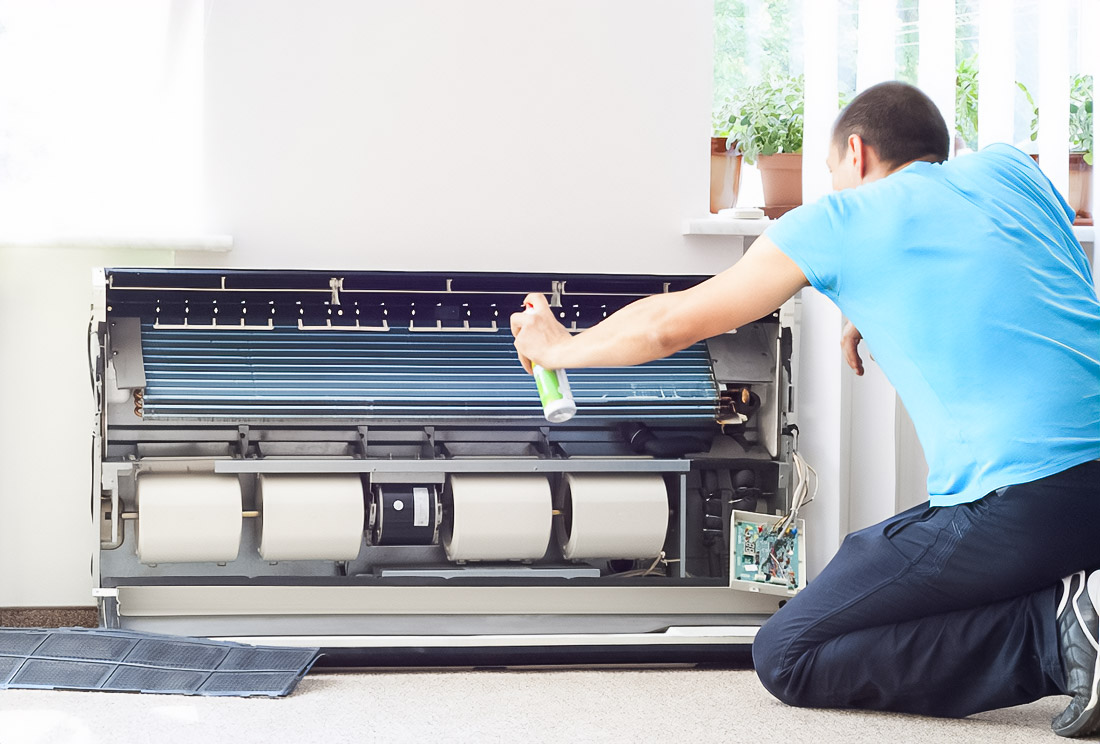
The desert constantly breathes onto the city. Fine particles enter filters with ease and settle on condenser and evaporator coils. Blocked filters restrict airflow, forcing the unit to operate at maximum strain. Drainage lines fill with debris, causing leaks inside homes. Sand works like abrasive paper, damaging compressors and fan blades, accelerating wear. Each storm becomes another costly challenge to efficiency and household budgets.
Effects of Sea Air on AC Systems
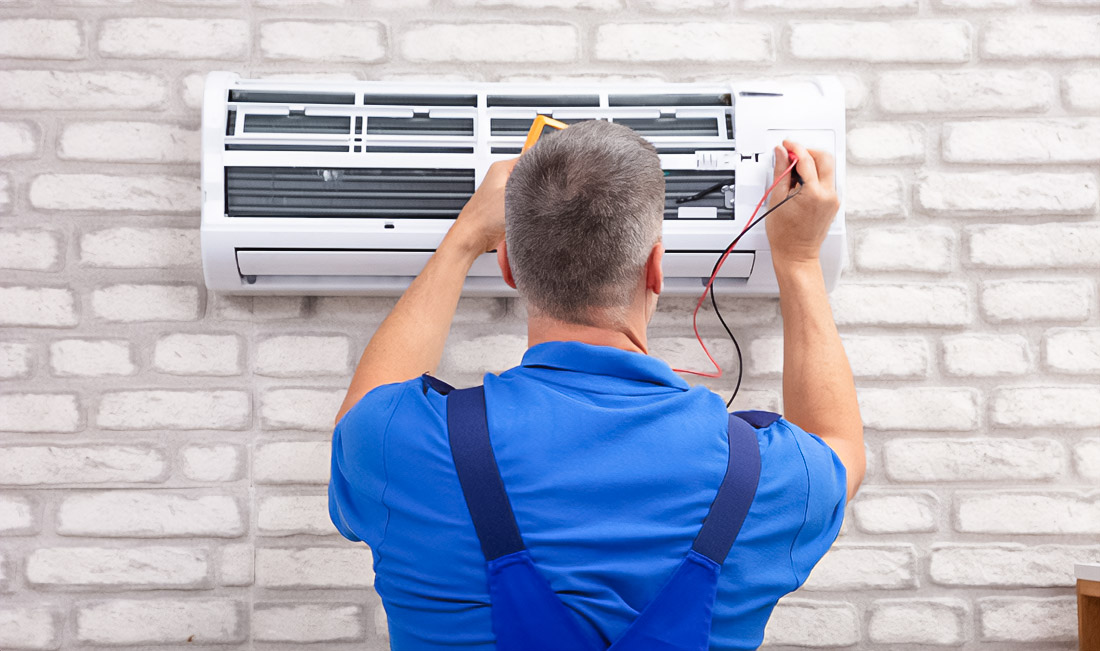
Districts near the shoreline such as Jumeirah, Marina, and Palm face an additional challenge. Sea air, heavy with salt, attacks metals relentlessly. Copper pipes, coils, and electrical connections degrade rapidly. Equipment that should last 10–12 years may barely survive half that time. Rust covers external housings, and refrigerant leaks become a common issue. Without protective coatings and regular rinsing, entire systems slowly “burn out” under layers of salt deposits.
Impact of Humidity on Mold Formation
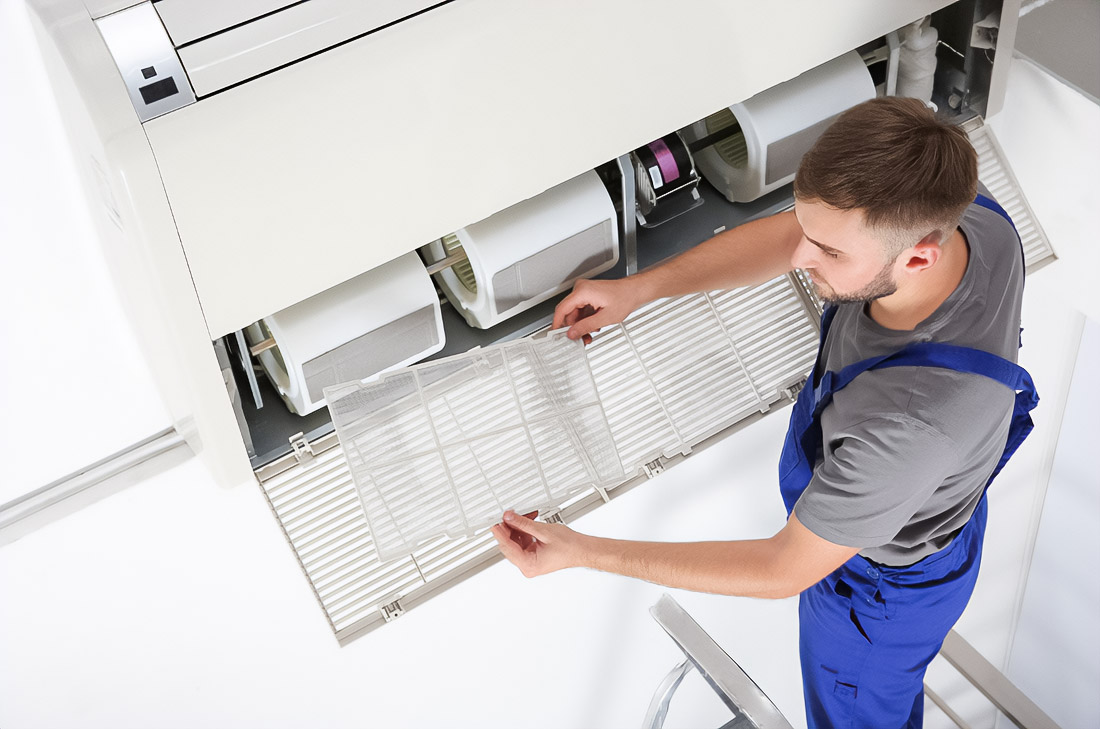
Persistent humidity overloads air conditioning units. They must not only cool the air but also dehumidify it, extending operating hours and energy use. Excess moisture collects in drainage trays, ducts, and filters. This damp environment allows mold and bacteria to thrive. Poor maintenance leads to respiratory problems such as allergies, persistent cough, and asthma. Air quality declines, and indoor spaces begin to smell musty and feel suffocating.
Signs of Declining AC Performance
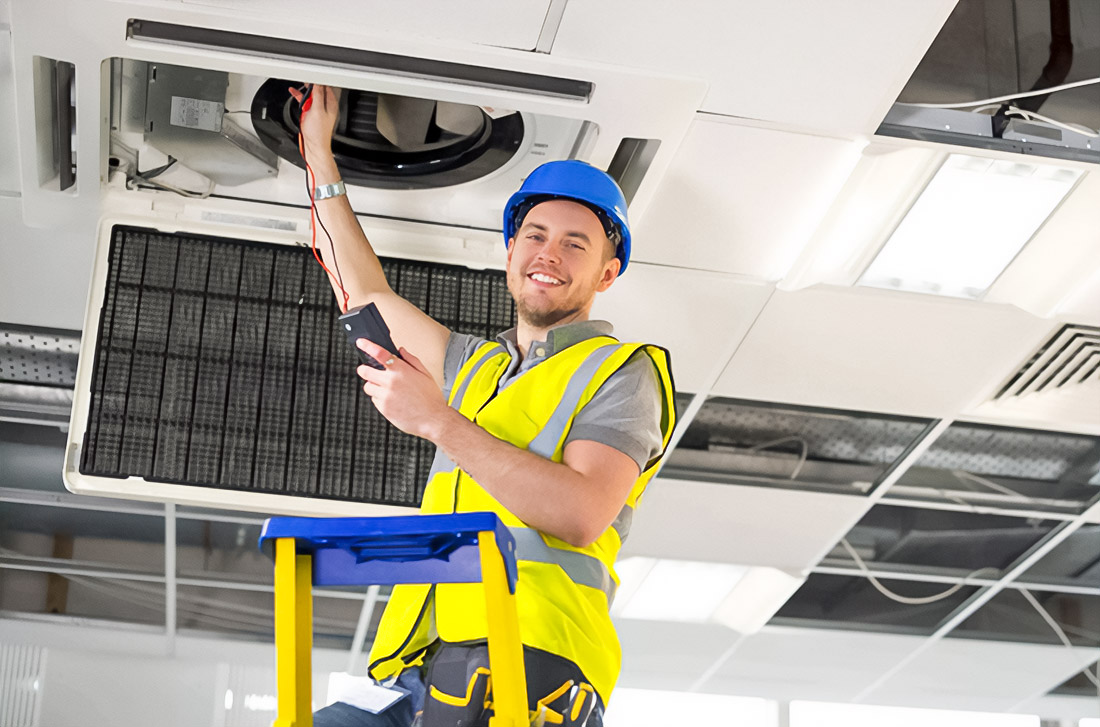
Air conditioners rarely fail suddenly. Usually, they show early signals:
- airflow becomes weak or warm;
- strange noises, vibrations, or humming emerge;
- musty odors spread from vents;
- water drips below indoor units;
- electricity bills climb sharply.
These symptoms often point to dirty coils, clogged filters, or advancing corrosion.
Why Consistent Maintenance Is Critical
In the climate of Dubai, prevention is essential. Filters must be cleaned or replaced monthly, especially following storms. Coils need rinsing to maintain heat exchange efficiency. In coastal zones, outdoor units require protective coatings and frequent flushing with fresh water. Experts advise at least two full services per year, and quarterly checkups for homes near the sea. Filters should be replaced monthly, with deep cleaning performed before summer begins. Consistent ac maintenance dubai is not optional it is the only way to safeguard both comfort and health.
The Influence of Cooling on Daily Life
Air conditioning has reshaped urban living. In apartments and villas, systems run around the clock. Windows remain shut, natural ventilation forgotten. The extreme climate dictates behavior: sports, walks, and gatherings shift indoors to malls, restaurants, and gyms. For months, many residents live in a form of self-imposed retreat. Social activity slows, while even architectural design bows to the dominance of heat.
Effective Measures for AC Protection
To extend the life of cooling systems and reduce financial strain, proven practices are applied:
- anti-corrosion treatments and protective covers;
- strategic placement of outdoor units to improve airflow;
- smart thermostats maintaining 24–26 °C;
- use of purifiers and dehumidifiers;
- routine HVAC inspections to prevent damage.
In Dubai, air conditioning is more than comfort, it is survival. Yet sand, salt, and moisture make every unit vulnerable. Only thorough maintenance, timely inspections, and careful operation keep systems reliable. For a coastal metropolis, the real issue is not whether air conditioning is required, but how to ensure it lasts as long as possible.
“The only impossible journey is the one you never begin.” –Tony Robbins
